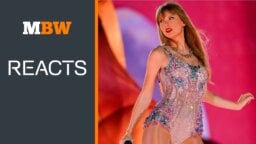Donald Trump’s gone and done it.
The US President yesterday (August 6) issued two executive orders banning the country’s citizens and businesses from undertaking any “transaction” with a duo of Chinese-owned platforms: Bytedance’s TikTok and Tencent’s WeChat.
There is a crucial difference between the two executive orders, however – one that appears to get the likes of Universal Music Group and Warner Music Group off the hook from serious commercial repercussions for their respective ownership structures. But first, the basic details.
Trump’s executive orders both go into effect 45 days after publication. The TikTok order appears to ban all dealings between US residents and businesses with the app’s parent company, Bytedance.
A letter from Trump’s administration accompanying the order, sent to the President Of The US Senate and Speaker Of The House yesterday, claims: “TikTok, a video-sharing mobile application owned by the Chinese company ByteDance Ltd., automatically captures vast swaths of information from its users.
“This data collection threatens to allow the Chinese Communist Party access to Americans’ personal and proprietary information — potentially allowing China to track the locations of Federal employees and contractors, build dossiers of personal information for blackmail, and conduct corporate espionage.”
It continues: “TikTok also reportedly censors content that the Chinese Communist Party deems politically sensitive, such as content concerning protests in Hong Kong and China’s treatment of Uyghurs and other Muslim minorities. TikTok may also be used for disinformation campaigns that benefit the Chinese Communist Party.”
The order then prohibits “any transaction by any person, or with respect to any property, subject to the jurisdiction of the United States, with ByteDance Ltd. (a.k.a. Zìjié Tiàodòng), Beijing, China, or its subsidiaries, in which any such company has any interest”.
Clearly, this order does not just target TikTok, but also Bytedance itself, and any of its brands or subsidiaries.
Should the same apply to Trump’s WeChat order – i.e. banning any transaction with its parent, Tencent Holdings Ltd – it would spell potential disaster for UMG and WMG. Tencent is a minority stakeholder in both major music companies.
A Tencent-led consortium is currently in discussions with Universal about buying a further 10% in its company, having already acquired a tenth of UMG from parent Vivendi back in March.
This, though, is where Trump’s wording is deliberately careful.
The letter accompanying the WeChat executive order letter reads (bolding MBW’s own): “[This] order prohibits, beginning 45 days after the date of the order, to the extent permitted under applicable law, any transaction that is related to WeChat by any person, or with respect to any property, subject to the jurisdiction of the United States, with Tencent Holdings Ltd. (a.k.a. Téngxùn Kònggǔ Yǒuxiàn Gōngsī), Shenzhen, China, or any subsidiary of that entity”.
That “related to WeChat” bit is obviously very important here.
Had the WeChat letter followed the structure of the Bytedance letter (i.e. not specifically making the ban relate only to the digital platform in question), all US-based entities would presumably be blocked from continuing, or at least beginning, a commercial relationship with Tencent.
Luckily for UMG and WMG, this does not appear to be the case.
Indeed, the Trump administration has confirmed to the LA Times that a number of US-based video games companies in which Tencent owns a stake – including Fortnite maker Epic Games – will not be affected by the WeChat ban.
In June, Tencent – in tandem with majority-owned subsidiary Tencent Music Entertainment – acquired a $200m stake in Warner Music Group. That meant Tencent now controls 10% of Universal, 9% of Spotify and nearly 2% of WMG.Music Business Worldwide





